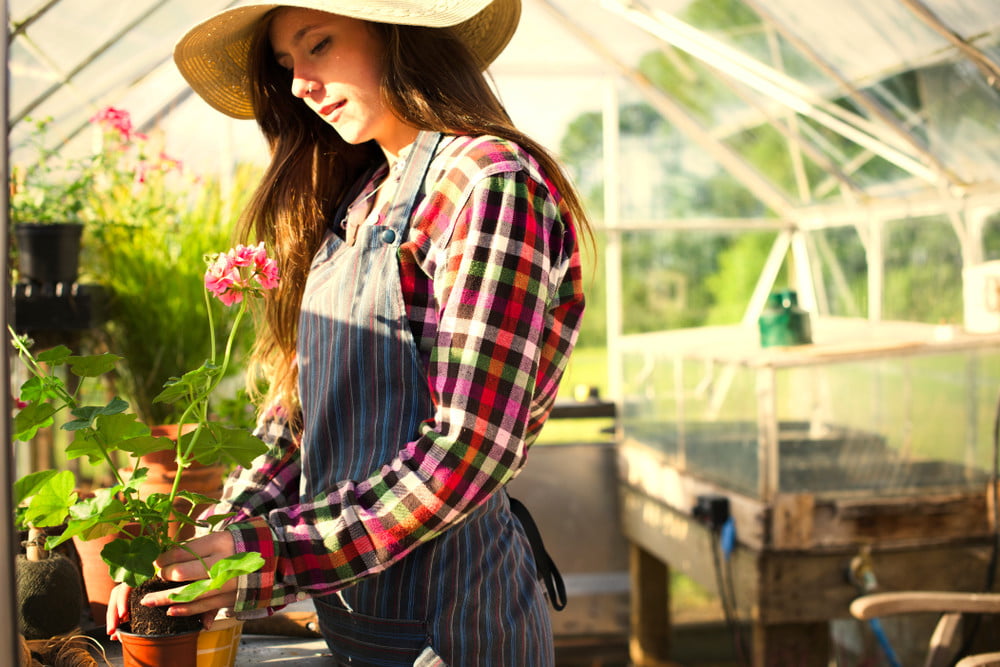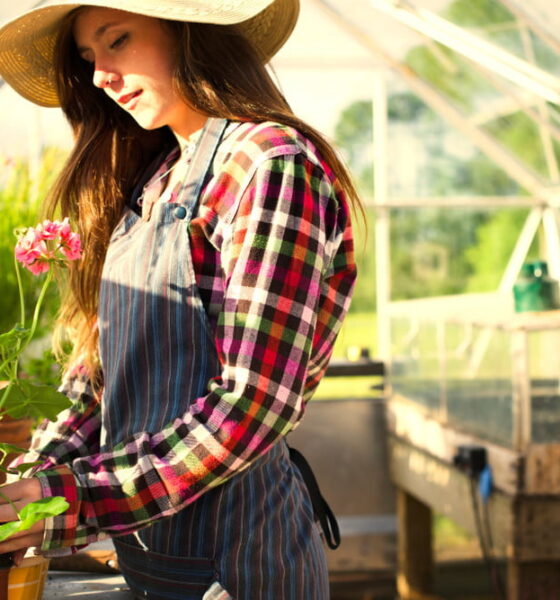

Environment
How Gardening is the #1 Green Hobby for 2019
Green living isn’t just good for the environment. Many of the habits that we can follow to promote sustainability are also good for our health. One of the healthiest green living ideas you can try is to start a garden.
Gardening is Great for the Environment and Your Health
Gardening has become a popular hobby. Around 33% of all homeowners grow their own food these days. There are a lot of reasons people are gardening:
- Helping the environment
- Saving money
- Being more healthy
The third is an often overlooked benefit. Getting out and about makes for a better and healthier life and one that can really impact positively on your whole outlook.
Understanding what it takes to care for your garden as summer approaches can give you the chance to do this and these tips below will provide the guidance you need.
1. Care For Budding Plants
If a camellia is dropping its flowers and buds, that is a sign that it isn’t getting enough water to sustain budding and the flowers. Dry weather could be the reason for the plant dropping buds and flowers. To prevent this, start deep watering the plants at least twice a week during hot and dry weather, and mulch as well. This should supplement the plant’s water supply thus preventing this irritating yet common problem. Mulch sales have grown 15%, because many people recognize the need for it to help keep plants healthy.
2. Ensure Roots In Potted Plants Stay Cool
Potted plants are susceptible to overheating in hot weather. Positioning the plants away from the direct and hot sunshine and applying light mulch can help keep the roots cool. Do not stand potted plants in saucers of water. The saucers of water will become breeding grounds for mosquitos or even worse, cause roots to start rotting. To avoid this, fill the saucers with sand to prevent standing water while keeping the sand moist. Wet sand also helps keep the plant roots moist and fresh even in hot weather. If re-wetting potted plants seem impossible, consider soaking them in a bucket of water for 30 minutes, then drain the excess water.
3. Water The Plants Early In The Morning
Always remember to water your plants early in the morning before the sun comes up. This way, much of the water will seep into the soil quenching the plant’s thirst for longer. In addition to this, watering in the afternoon, or towards sunset increases the risk of mildew and fungi attacking the plant leaves. Mildew should be avoided especially with melon, pumpkin, roses, cucumber, and zucchini plants. Using hose spray nozzles can help you to avoid getting water on the leaves and instead get the water directly into the soil. You can also lower the risk of mildew damage by spraying your plants with a solution of milk and water (1:10 ratio) weekly.
4. Supplement The Soil Nutrients
If you rarely get time to water your plants, water them deeply whenever you get a chance. It would also be advisable to correct mineral deficiencies by adding soluble fertilizer and seaweed to the irrigation water. Potash too will be needed to help supplement the plant’s nutrient sources. Only water the plants around their base for the best results. This is particularly essential for the banana, citrus, and lychee plants. Adding potash improves the fruit’s juiciness and flavor. Potash not only supplements the plant’s potassium but also helps control anthracnose disease in mango and avocado plants. It also improves the plant’s resistance to foliar fungi.
5. Keep Your Lawn Long And Lush
Cutting your lawn too low only leaves the ground bare, brown, and increases the risk of weed infestation. Many people believe mowing the grass low reduces the need to cut it again – this is however just a misconception. Avoid cutting the lawn too low and cut it as high as your mower permits. Among other reasons, long turf suppresses pernicious weeds and wears much better. In addition to this, fresh lawn clippings play an essential role in mulching shrubberies and activating compost heaps. The mulch should however be applied thinly (5cm deep) to avoid collar rot on shrubs and trees.
The lawn will also do well with a foliar feed. Use seaweed tonic and a handful of poultry manure (per sq. meter) for this. Be sure to do this just before the rains or watering the lawn. Wait for at least two weeks for the foliar feed and poultry manure to green the lawn. The resting time also allows foul odor from the same to disappear.
6. Keep The Water Running
Ensure your irrigation systems and hoses are in a perfect working condition. Unblock nozzles and take care of any leaks in these. You’ll also want to clean the gutters to clear any debris that might have accumulated over time. Use a mosquito mesh to stop frogs and mosquitoes from entering pipes and tanks. This should help you have more water for watering your garden and lawn.
7. Work In The Garden Or Lawn When It Is Cool
Working in the garden when the sun is the hottest can be draining. That said, consider doing the most laborious chores before the sun comes up and after sunset. This way, you won’t have to deal with the harsh sun rays and sunburns. Be sure to bring your hat and put on some sunscreen when working in the garden. Don’t forget the mosquito repellent too.
8. Shelter New Plantings
Flower seedlings and freshly transplanted vegetables will require additional care and protection against the direct sun. That said, you need to shelter these plants and seedlings for about a week or two. Old net curtains, shade cloth, dead palm fronds, and leafy branches will come in handy in providing shelter and protection to these delicate plants.
Gardening is Great for Green Living and Staying Healthy
If you are serious about staying healthy and living green, starting a garden might be the way to go. Around 33% of all homeowners have started growing their own food. This figure is likely to rise as more people express concerns about sustainability.
When this is all done you can enjoy your space from your new garden room from https://www.quick-garden.co.uk/


 Environment12 months ago
Environment12 months agoAre Polymer Banknotes: an Eco-Friendly Trend or a Groundswell?

 Features11 months ago
Features11 months agoEco-Friendly Cryptocurrencies: Sustainable Investment Choices

 Features12 months ago
Features12 months agoEco-Friendly Crypto Traders Must Find the Right Exchange

 Energy11 months ago
Energy11 months agoThe Growing Role of Solar Panels in Ireland’s Energy Future
















